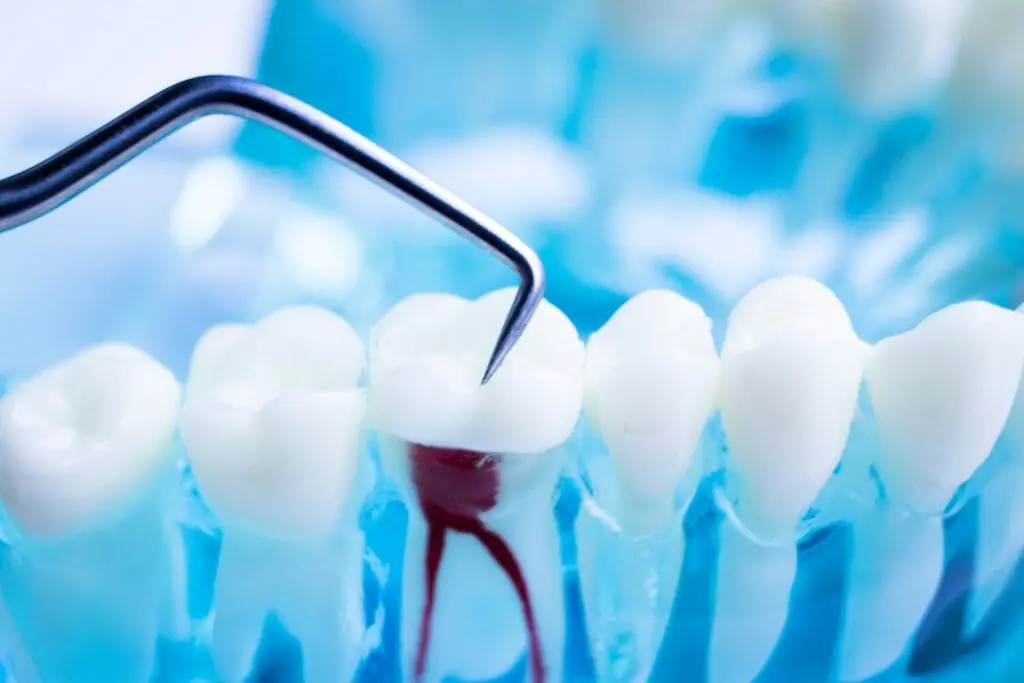Restorative dentistry plays a key role in maintaining long-term oral health. By addressing damaged, decayed, or missing teeth, this branch of dentistry helps patients regain the functionality of their smile. Beyond aesthetics, it focuses on preserving the natural structure of your teeth. Restorative treatments offer the following solutions to common dental issues:
Restorative Dentistry Treatments
There are several treatment options available to restore the health and appearance of your teeth. Each treatment addresses specific dental challenges, enabling patients to maintain a well-functioning and aesthetically pleasing smile.
- Fillings: Fillings repair cavities, aiming to prevent further decay and restore the tooth’s original shape and function. They act as a barrier, sealing the tooth after decay has been removed.
- Crowns: Crowns, often referred to as “caps,” are designed to cover and protect teeth that have been damaged or weakened. These restorations provide additional strength and durability to maintain normal chewing and speaking functions.
- Bridges: A dental bridge replaces one or more missing teeth, using nearby teeth or implants as support. It aims to restore both the natural appearance of your smile and the function of your bite.
- Dental Implants: Implants offer a more permanent solution for missing teeth. They include a titanium post that serves as a root, topped with a custom crown that blends seamlessly with natural teeth.
- Dentures: Dentures replace multiple missing teeth and can be removed for cleaning. They come in full and partial options, catering to different levels of tooth loss.
- Root Canal Therapy: Root canal treatment addresses infected or damaged pulp tissue inside a tooth. This procedure saves the natural tooth by removing the infection and sealing it off to prevent further complications.
Restorative Dentistry Benefits
Restorative dentistry offers more than just a beautiful smile. Restoring and repairing teeth improves oral health, overall comfort, and quality of life. Here are a few of the ways it helps patients thrive:
- Preserving Oral Functionality: When teeth are damaged or missing, chewing and speaking become challenging. Restorative treatments resolve these issues, making daily life more comfortable.
- Preventing Future Problems: Addressing cavities, cracks, and gaps early reduces the likelihood of future complications. Untreated decay can lead to infections, while missing teeth might cause misalignment or jaw pain over time.
- Enhancing Aesthetics: Many restorative options not only improve function but also restore the natural look of your teeth. Treatments such as crowns, bridges, and implants are designed to match your natural teeth.
- Promoting Long-Term Oral Health: When decay and damage are treated, the surrounding teeth remain healthier. Restorative care helps your natural teeth stay strong for as long as possible.
Customized Dental Solutions
Ignoring dental problems may lead to more significant challenges in the future. Issues like small cavities or damaged teeth are often easier to fix when detected early. Restorative dentistry offers an opportunity to address these concerns before they escalate, with the goal of saving you from discomfort and potentially more extensive treatments in the future.
Call a Dentist for Restorative Work
If you’re experiencing tooth pain, missing teeth, or other dental concerns, seeking advice from a dental professional is the best first step. They can assess your situation and recommend the treatment that aligns with your needs. Regular check-ups also help monitor your teeth and catch potential issues before they have a chance to worsen. Restorative dentistry actively contributes to your overall quality of life, allowing you to eat, speak, and smile. Take action now and schedule a consultation with a dentist.


Leave a Reply